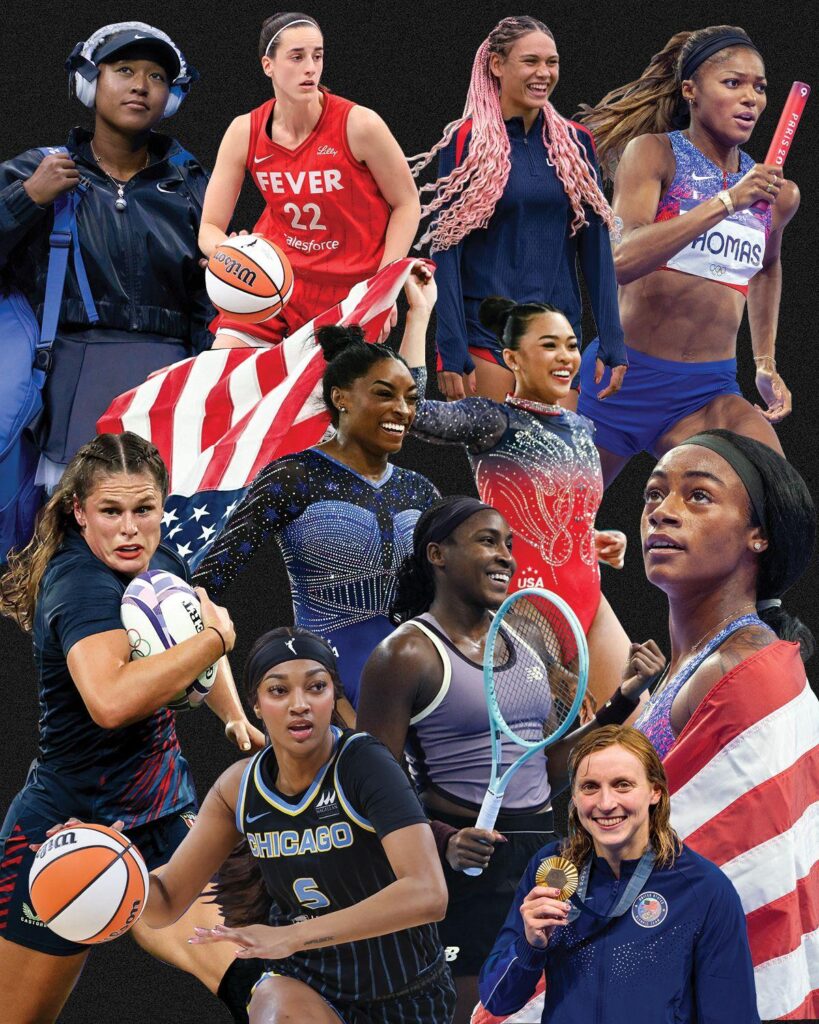In a recent update ahead of the upcoming World Athletics Championships, the governing body announced that 95% of female athletes have successfully completed mandatory sex verification testing. This significant milestone underscores the organization’s ongoing commitment to ensuring fair competition and maintaining the integrity of the sport. As the championships approach, World Athletics continues to emphasize rigorous compliance with its eligibility regulations, aiming to create a level playing field for all participants.
World Athletics Reports High Completion Rate of Sex Testing Among Female Athletes
World Athletics has confirmed that nearly 95% of female athletes scheduled to compete in the upcoming world championships have successfully completed mandatory sex verification testing. This milestone underscores the organization’s commitment to fairness and integrity in competitive sports, while also addressing concerns regarding eligibility criteria. The high completion rate reflects extensive coordination with athletes, teams, and medical officials to ensure compliance with global standards set for international track and field events.
The testing process, which includes both biological and genetic evaluations, aims to maintain a level playing field and protect the rights of all competitors. Below is a breakdown of the completion percentages by region, demonstrating the widespread adherence to the testing protocols:
| Region | Completion Rate |
|---|---|
| Europe | 97% |
| Africa | 93% |
| Asia | 94% |
| Americas | 96% |
| Oceania | 92% |
- Compliance enforcement continues to be a priority to avoid last-minute disqualifications.
- Educational initiatives have been launched to inform athletes about the testing process.
- Medical confidentiality remains strictly upheld throughout all procedures.
Implications of Widespread Sex Testing on Athlete Privacy and Performance
The implementation of widespread sex testing among female athletes has sparked significant debate around privacy concerns and the potential impact on athletic performance. As governing bodies enforce these measures, many athletes express apprehension about the invasive nature of testing protocols, which often require sensitive biological data. Critics argue that such scrutiny risks violating personal boundaries and may contribute to heightened stress levels, potentially diminishing on-field performance. The psychological toll, combined with the public exposure of private information, poses new challenges in maintaining athlete well-being and equitable competition.
Beyond individual privacy, the broader implications for the sports community are complex. Coaches, sponsors, and fans must navigate the fine line between fairness and respect, as some athletes may feel stigmatized or unfairly targeted. The table below outlines key concerns alongside potential effects:
| Concern | Potential Effect |
|---|---|
| Emotional distress | Reduced focus and increased anxiety |
| Data confidentiality | Risk of leaks and public scrutiny |
| Competitive fairness | Enhanced regulation but possible exclusion |
| Trust in institutions | Potential erosion of athlete confidence |
- Maintaining transparency while upholding privacy rights remains critical.
- Investing in athlete support systems can mitigate some negative impacts.
- Reevaluating testing criteria may better balance fairness and dignity.
Expert Analysis on the Accuracy and Fairness of Current Sex Verification Protocols
Recent expert evaluations reveal a complex landscape regarding the accuracy and fairness of current sex verification protocols in athletics. While World Athletics reports that 95% of female athletes have completed mandatory testing ahead of this year’s world championships, specialists caution that the methods employed – ranging from hormone level assessments to DNA tests – do not always capture the nuanced biological realities of gender. Critics argue that such protocols may inadvertently exclude or disadvantage athletes with differences in sexual development (DSD), undermining inclusivity and fairness within competitions.
Medical and sports science authorities emphasize the need for continuous refinement of testing standards. Key concerns include:
- Inconsistency in thresholds used to determine eligibility
- Potential psychological impact on athletes undergoing invasive procedures
- Ethical debates surrounding privacy and bodily autonomy
- Limited global consensus on standardized protocols
The following table summarizes stakeholders’ perspectives on the protocols’ efficiency and equity:
| Stakeholder | Perspective | Key Concern |
|---|---|---|
| World Athletics | Supports current testing as essential | Maintain level playing field |
| Medical Experts | Call for improved accuracy and sensitivity | Biological variability |
| Athlete Advocates | Highlight fairness and psychological well-being | Human rights and dignity |
Recommendations for Enhancing Transparency and Support in Future Testing Procedures
To foster trust and clarity in the testing process, athletics authorities should prioritize open communication with athletes from the outset. This involves providing comprehensive information about the purpose, procedures, and potential outcomes of sex testing in a respectful and accessible manner. Emphasizing confidentiality, psychological support, and the option for athletes to consult with medical or legal experts before undergoing tests can significantly reduce anxiety and resistance. Moreover, it’s vital to incorporate feedback from athletes themselves to refine protocols that not only meet scientific standards but also uphold dignity and fairness.
Implementing standardized guidelines across all competitions will help eliminate inconsistencies and confusion. Consider the following key measures as part of a transparent and supportive framework:
- Clear timelines for testing phases and result disclosures
- Dedicated counseling services available pre- and post-testing
- Anonymous reporting channels for concerns or grievances
- Periodic review of policies with stakeholder involvement
| Measure | Benefit |
|---|---|
| Confidentiality Protocols | Protect athlete privacy and reduce stigma |
| Psychological Support | Alleviate stress and promote well-being |
| Standardized Procedures | Ensure fairness and consistency |
| Stakeholder Engagement | Build trust through inclusivity |
To Conclude
As the World Athletics Championships approach, the organization’s announcement that 95% of female athletes have completed mandatory sex testing underscores the continued emphasis on fairness and integrity in global competition. While the testing process remains a subject of debate within the sporting community, World Athletics maintains that these measures are essential to ensuring a level playing field. Further updates are expected as the championships draw near and the final list of eligible competitors is confirmed.





